This week we revisit growers from Meath, Cork and Derry where field work is progressing at an uneven pace. In the northwest, Richard’s harvest has just been completed while in the south, Stephen is about to commence autumn cereal planting. Meanwhile in the east, Martin has completed his autumn planting campaign.
Martin Hoste
Clonee, Co Meath
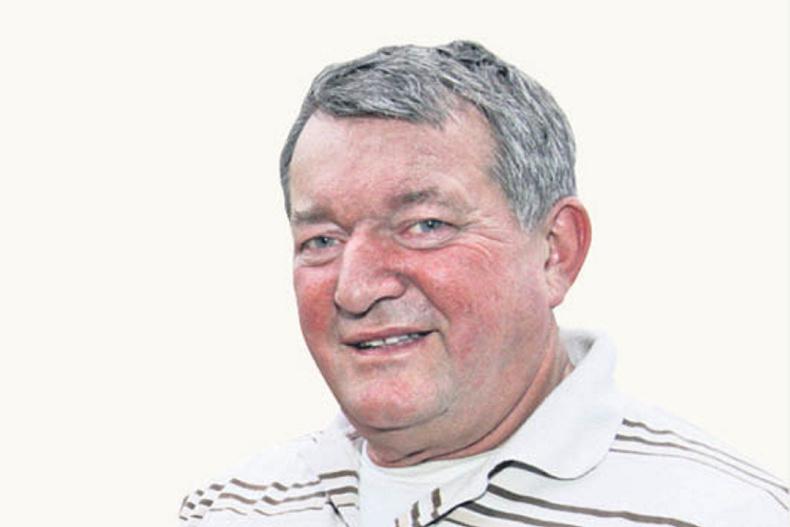
Good conditions continue to prevail in Clonee with rainfall over the month of September amounting to around 16ml. While the ground remains very dry, Martin explains that there is a nice amount of moisture in the top few inches of the soil.
When talking to Martin last month, he was one week away from harvesting his spring beans. The crop averaged 1.8t/ac at 19% moisture content. He was happy with the result but yields are back around 0.75t/ac on average.
His winter oilseed rape remains slug free and Martin is unsure of exactly why that is, “Could it be a dry year, eco tillage, baling straw? I don’t know” he said. The crop is at the four to five leaf stage.
Martin sprayed his Clearfield (CL) enabled oilseed rape variety Phoenix with Cleranda (2.0l/ha) along with the adjuvant Desh-HC (1.0l/ha). Charlock numbers are high in this field which is why he chose to grow a CL variety. It’s the first time in 30 years that oilseed rape has been grown in this field.
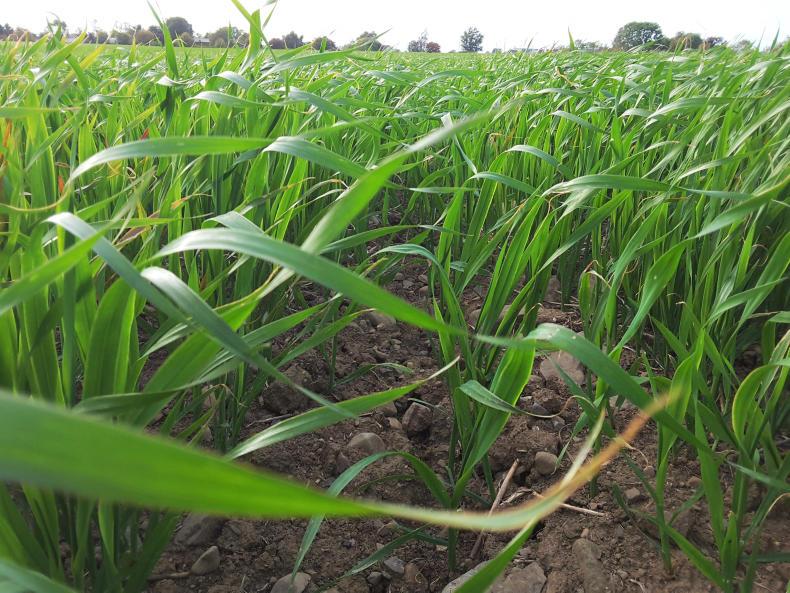
Martin Hoste sowed his oat cover crop on August 18. The crop is now thick and lush.
Autumn planting a wrap
Autumn planting started last week and was completed in five days. He sowed most of his area with Costello this year, dressed with either Redigo Deter or Latitude depending on the field. He’s also trying a small amount of Bennington this year.
He burnt off stubble ground with Ardee (1.5l/ha) along with Nauturhumus-Bio Fulvic (2.0l/ha) prior to sowing. Traditionally Martin aimed to sow winter wheat by the last week of September/first week of October but over the past number of years he’s noticed better establishment, increased yields and increased quality from sowing around September 20. Increased disease pressure hasn’t been an issue.
The crops were sown at around 180kg/ha along with 20kg/ha of RadioStart. Most of the Costello was home saved seed and has a germination rate of over 90%. His oat cover crop was sown at 140kg/ha on August 18 using a Bredal spreader followed by a run with a cultivator and rolled. The crop has developed exceptionally well and is very lush.
“In this kind of weather you can really sail through the work, we put in a nice days work and finished up in good time.”
Stephen Collins Mogeely, Co Cork

Around 80ml of rain has fallen in Mogeely over the past month but despite this, ground conditions remain excellent. Overall the weather has been reasonable, Stephen explains and while temperatures have turned noticeably cooler, growth remains good.
He now expects to lift the first of his fodder beet in around three weeks’ time. This is later than first thought due to a result of better than anticipated grass growth.
His beet has now turned a lush green colour, which it lacked a little all year. Stephen is happy with the emergence of his winter oilseed rape (WOSR) and the crop is developing well. He didn’t apply slug pellets or an insecticide for flea beetle as there was no need this season. “The oilseed is getting off to a good start this year” he explains.
Stephen’s WOSR was sprayed last Monday with Salsa (25g/ha) along with the adjuvant Activator 90 at 0.1% of the water volume for charlock control. Stephen explains that he has to be very selective on the day he decides to spray Salsa as there must be good growing conditions.
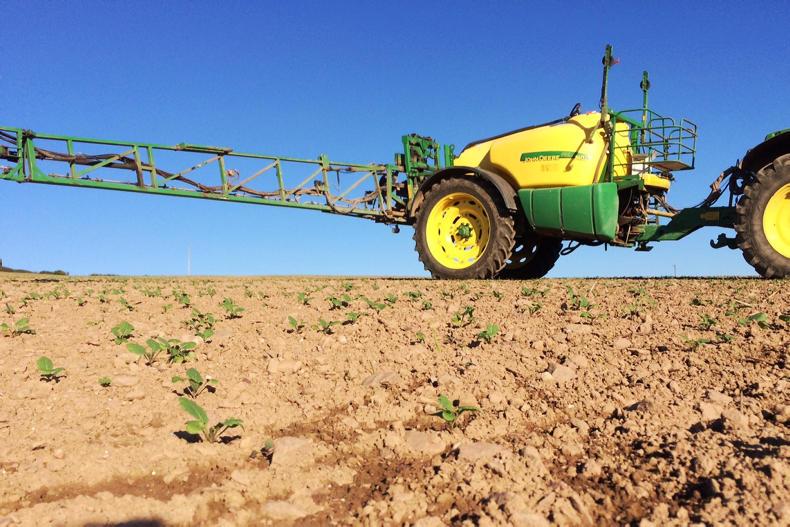
Stephen Collins, spraying his winter oilseed rape with Salsa (25g/ha) in great conditions.
Autumn planting to start this week
Stephen has been spraying off stubble ground where needed over the past few weeks.
He started ploughing with his Lemken five furrow slatted board plough last week and intends on starting sowing this week. The ground is ploughing up well with good levels of moisture in the soil.
He plans on sowing Infinity, Belfry and Kosmos winter barley this year. Seed supply is noticeably tighter. All winter barley is dressed with Redigo Deter this year.
“All our seed is treated with Redigo Deter, it remains to be seen how we’re going to manage next year without it, it won’t be easy” Stephen remarks. He won’t start sowing his Bennington, Costello and JB Diego winter wheat before October 15 as the risk of disease pressure is too high. All crops will be rolled after sowing as conditions are good enough at present.
“The autumn sowing season is starting off from a good place. If we do get some rain the ground should be able to take it and still be workable.”
Richard Kane Limavady, Co Derry

A difficult harvest came to an end last Saturday on Richard’s farm as poor weather made for a challenge to get over the finishing line. While ground conditions remain very good, it’s been hard to get three dry days in a row. When it’s not raining, drying conditions have been poor.
Dews have been slow to clear and evenings close in quick, meaning straw has had to be turned multiple times before baling.
Richard finished his harvest last Saturday and despite the challenging weather, yields and quality were excellent. His spring barley averaged 3.0t/ac but moistures were high towards the end of the harvest. Straw yields were back however, at around five 4x4 bales/ac. Richard puts this down to the effects of the drought. He has around 70 acres of barley straw and 30 areas of spring oilseed rape (SOSR) straw left to bale.
His DSV Lumen SOSR averaged 1.5t/ac at 16% moisture content. While he is happy with this yield, he thinks an amount of grain was lost through the combine as the ground is green with volunteers.
Straw yields
Straw yields were reasonable, at around eight to nine 4x4 round bales/ac. He plans on sowing 70 acres of SOSR next year due to the strong performance of the crop this year.
A first for Richard this year was growing spring wheat. His Quintus crop averaged 3.5t/ac with reasonable straw yields. He is happy with the crop’s performance and is considering growing spring wheat seed next year.
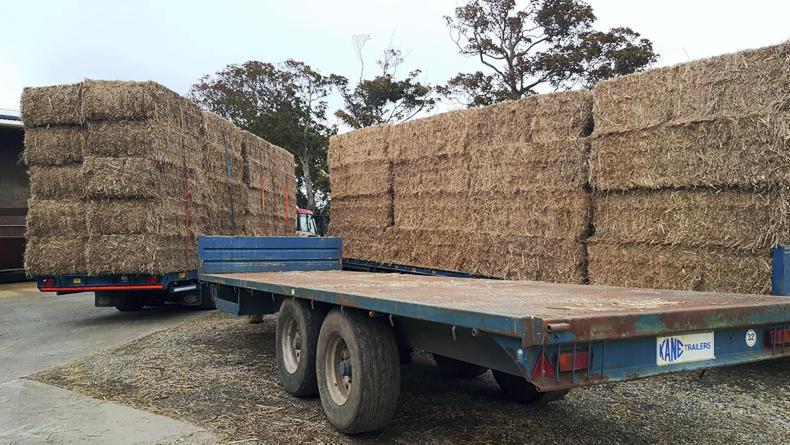
Richard Kane loading spring oilseed rape quadrant bales.
Richard has yet to start sowing winter cereals. So far he has one field ploughed but plans on minimum tilling around 60% of his winter cereals this year as ground conditions are good. The plan is to get back to the normal winter cropping regime this year.
He will sow around 50% of the cereal area in winter wheat and also increase his winter barley area.
His winter oilseed rape has received a pre-emerge herbicide of Legion (1.5l/ha) and is developing well. Slug pressure is very low.
“This year is almost as difficult as last year, but the ground conditions are still excellent. We’re not getting the same volume of rain but drying days are limited.”
Read more
From the Tramlines: winter planting to start next week
Storm Ali takes toll on maize crops
This week we revisit growers from Meath, Cork and Derry where field work is progressing at an uneven pace. In the northwest, Richard’s harvest has just been completed while in the south, Stephen is about to commence autumn cereal planting. Meanwhile in the east, Martin has completed his autumn planting campaign.
Martin Hoste
Clonee, Co Meath

Good conditions continue to prevail in Clonee with rainfall over the month of September amounting to around 16ml. While the ground remains very dry, Martin explains that there is a nice amount of moisture in the top few inches of the soil.
When talking to Martin last month, he was one week away from harvesting his spring beans. The crop averaged 1.8t/ac at 19% moisture content. He was happy with the result but yields are back around 0.75t/ac on average.
His winter oilseed rape remains slug free and Martin is unsure of exactly why that is, “Could it be a dry year, eco tillage, baling straw? I don’t know” he said. The crop is at the four to five leaf stage.
Martin sprayed his Clearfield (CL) enabled oilseed rape variety Phoenix with Cleranda (2.0l/ha) along with the adjuvant Desh-HC (1.0l/ha). Charlock numbers are high in this field which is why he chose to grow a CL variety. It’s the first time in 30 years that oilseed rape has been grown in this field.

Martin Hoste sowed his oat cover crop on August 18. The crop is now thick and lush.
Autumn planting a wrap
Autumn planting started last week and was completed in five days. He sowed most of his area with Costello this year, dressed with either Redigo Deter or Latitude depending on the field. He’s also trying a small amount of Bennington this year.
He burnt off stubble ground with Ardee (1.5l/ha) along with Nauturhumus-Bio Fulvic (2.0l/ha) prior to sowing. Traditionally Martin aimed to sow winter wheat by the last week of September/first week of October but over the past number of years he’s noticed better establishment, increased yields and increased quality from sowing around September 20. Increased disease pressure hasn’t been an issue.
The crops were sown at around 180kg/ha along with 20kg/ha of RadioStart. Most of the Costello was home saved seed and has a germination rate of over 90%. His oat cover crop was sown at 140kg/ha on August 18 using a Bredal spreader followed by a run with a cultivator and rolled. The crop has developed exceptionally well and is very lush.
“In this kind of weather you can really sail through the work, we put in a nice days work and finished up in good time.”
Stephen Collins Mogeely, Co Cork

Around 80ml of rain has fallen in Mogeely over the past month but despite this, ground conditions remain excellent. Overall the weather has been reasonable, Stephen explains and while temperatures have turned noticeably cooler, growth remains good.
He now expects to lift the first of his fodder beet in around three weeks’ time. This is later than first thought due to a result of better than anticipated grass growth.
His beet has now turned a lush green colour, which it lacked a little all year. Stephen is happy with the emergence of his winter oilseed rape (WOSR) and the crop is developing well. He didn’t apply slug pellets or an insecticide for flea beetle as there was no need this season. “The oilseed is getting off to a good start this year” he explains.
Stephen’s WOSR was sprayed last Monday with Salsa (25g/ha) along with the adjuvant Activator 90 at 0.1% of the water volume for charlock control. Stephen explains that he has to be very selective on the day he decides to spray Salsa as there must be good growing conditions.

Stephen Collins, spraying his winter oilseed rape with Salsa (25g/ha) in great conditions.
Autumn planting to start this week
Stephen has been spraying off stubble ground where needed over the past few weeks.
He started ploughing with his Lemken five furrow slatted board plough last week and intends on starting sowing this week. The ground is ploughing up well with good levels of moisture in the soil.
He plans on sowing Infinity, Belfry and Kosmos winter barley this year. Seed supply is noticeably tighter. All winter barley is dressed with Redigo Deter this year.
“All our seed is treated with Redigo Deter, it remains to be seen how we’re going to manage next year without it, it won’t be easy” Stephen remarks. He won’t start sowing his Bennington, Costello and JB Diego winter wheat before October 15 as the risk of disease pressure is too high. All crops will be rolled after sowing as conditions are good enough at present.
“The autumn sowing season is starting off from a good place. If we do get some rain the ground should be able to take it and still be workable.”
Richard Kane Limavady, Co Derry

A difficult harvest came to an end last Saturday on Richard’s farm as poor weather made for a challenge to get over the finishing line. While ground conditions remain very good, it’s been hard to get three dry days in a row. When it’s not raining, drying conditions have been poor.
Dews have been slow to clear and evenings close in quick, meaning straw has had to be turned multiple times before baling.
Richard finished his harvest last Saturday and despite the challenging weather, yields and quality were excellent. His spring barley averaged 3.0t/ac but moistures were high towards the end of the harvest. Straw yields were back however, at around five 4x4 bales/ac. Richard puts this down to the effects of the drought. He has around 70 acres of barley straw and 30 areas of spring oilseed rape (SOSR) straw left to bale.
His DSV Lumen SOSR averaged 1.5t/ac at 16% moisture content. While he is happy with this yield, he thinks an amount of grain was lost through the combine as the ground is green with volunteers.
Straw yields
Straw yields were reasonable, at around eight to nine 4x4 round bales/ac. He plans on sowing 70 acres of SOSR next year due to the strong performance of the crop this year.
A first for Richard this year was growing spring wheat. His Quintus crop averaged 3.5t/ac with reasonable straw yields. He is happy with the crop’s performance and is considering growing spring wheat seed next year.

Richard Kane loading spring oilseed rape quadrant bales.
Richard has yet to start sowing winter cereals. So far he has one field ploughed but plans on minimum tilling around 60% of his winter cereals this year as ground conditions are good. The plan is to get back to the normal winter cropping regime this year.
He will sow around 50% of the cereal area in winter wheat and also increase his winter barley area.
His winter oilseed rape has received a pre-emerge herbicide of Legion (1.5l/ha) and is developing well. Slug pressure is very low.
“This year is almost as difficult as last year, but the ground conditions are still excellent. We’re not getting the same volume of rain but drying days are limited.”
Read more
From the Tramlines: winter planting to start next week
Storm Ali takes toll on maize crops









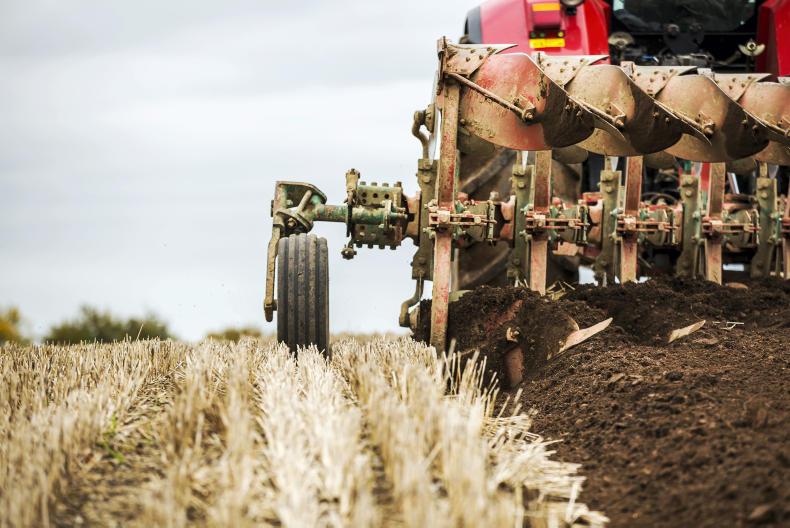

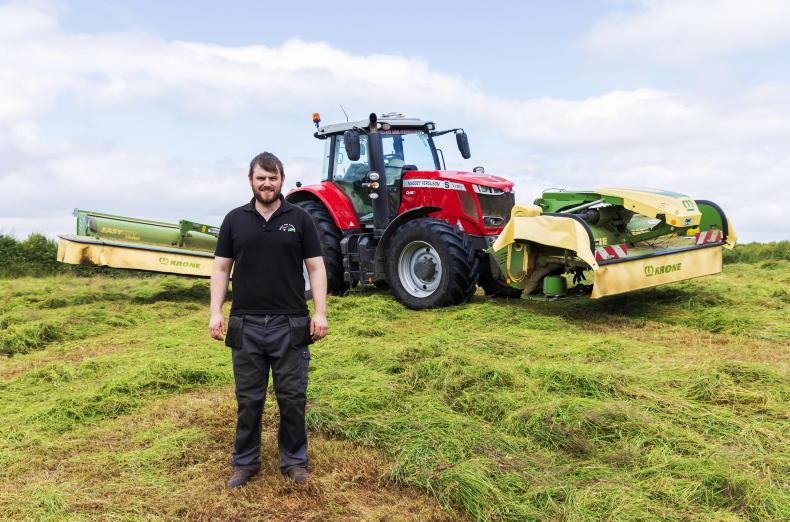
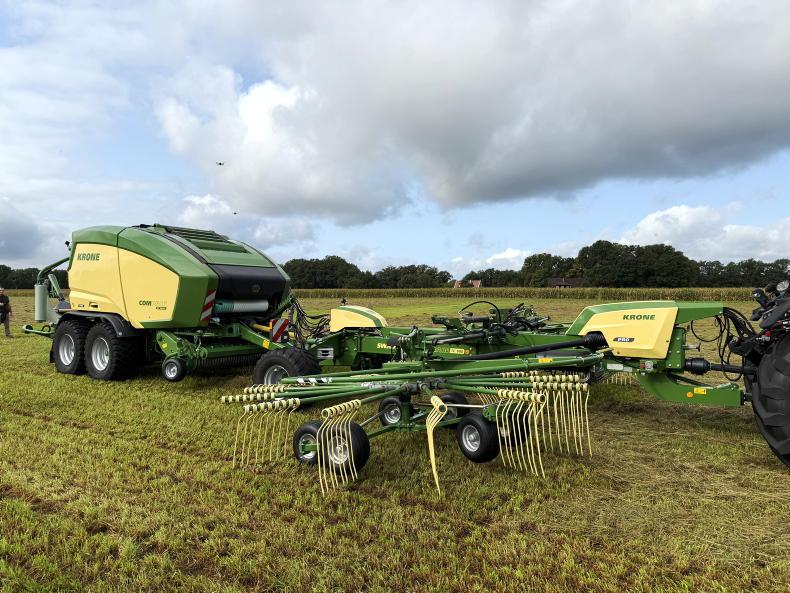
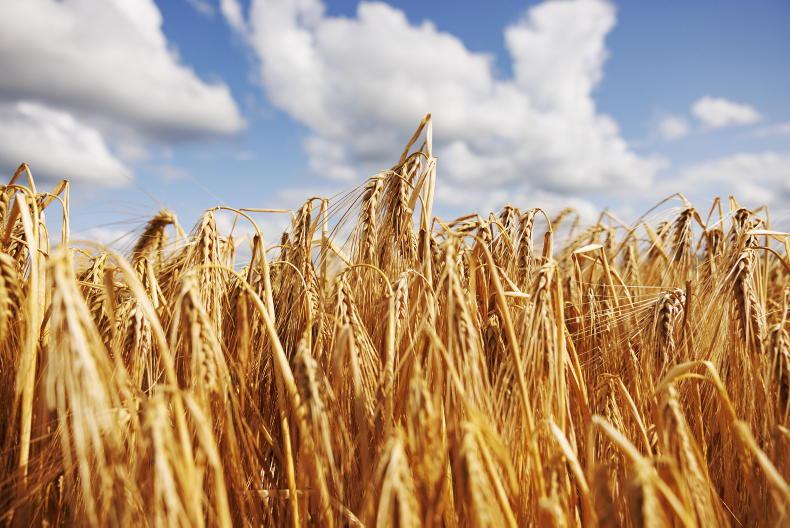
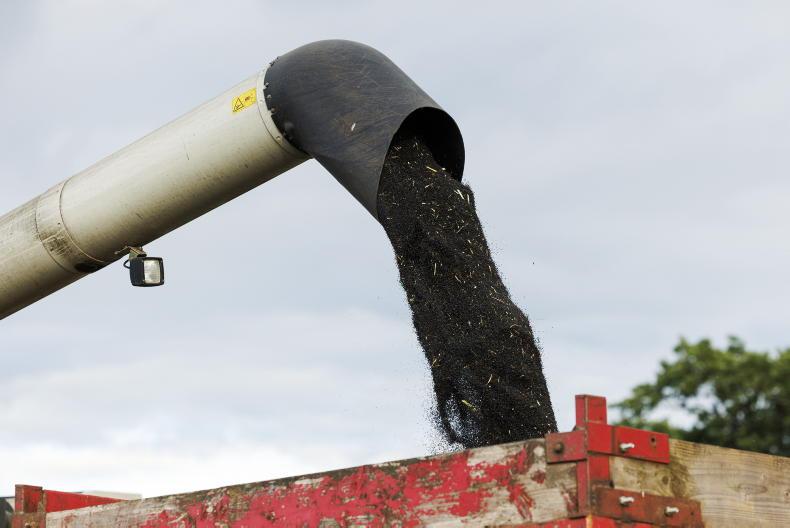
SHARING OPTIONS